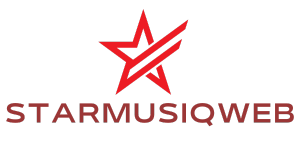The Benefits of Implementing Customer Reference Management Software in Your Business

Businesses of all sizes are constantly seeking ways to optimize their sales processes, improve customer engagement, and streamline operations. Implementing Customer Reference Management (CRM) software has emerged as a strategic approach to achieve these objectives. By leveraging the power of customer references in sales cycles, organizations are able to exhibit real-world credibility and trustworthiness. Below, we explore the vast benefits of CRM software and how it can transform your business operations. Keep reading to discover how this tool can significantly influence your company’s success.
Exploring the Essentials of Customer Reference Management Software
In today’s fast-paced business environment, customer reference management software offers a significant edge by centralizing and automating the handling of customer endorsements. This type of software typically features databases for customer contacts, testimonial repositories, and tracking tools to streamline reference usage, making it easier for sales teams to access and deploy impactful testimonials.
This software excels in matching the right reference to the right prospect and enhancing the effectiveness of sales pitches with relevant, compelling testimonials. By facilitating communication with reference customers and maintaining an updated library of success stories, customer reference management software boosts sales team confidence and improves overall sales efforts.
Streamlining Sales Cycles With Effective Reference Coordination
Customer reference management software can significantly reduce the length of sales cycles by providing a structured database of references. This allows sales representatives to respond quickly to prospect inquiries, providing relevant testimonials, and accelerating decision-making. Effective reference coordination prevents repetitive requests and maintains positive relationships with reference customers.
By streamlining the process of identifying and delivering references, organizations can create a standardized method for leveraging customer success, benefiting larger sales teams. This reduces administrative tasks and allows sales staff to focus on engaging with prospects and closing deals. CRM software also allows strategic adjustments based on reference effectiveness.
Enhancing Customer Satisfaction Through Structured Reference Programs
Customer satisfaction is crucial for a business’s longevity. CRM software can enhance customer satisfaction by recognizing and valuing their contributions as references. This fosters a sense of partnership and investment in the brand’s success. Well-managed reference engagements improve customer experiences, demonstrating respect for their time and resulting in increased willingness to recommend products or services.
CRM software allows businesses to monitor and measure the impact of their reference programs, optimizing engagement strategies for maximum satisfaction. A satisfied reference customer becomes a powerful brand ambassador, reinforcing the impact of word-of-mouth marketing, which remains influential in purchasing decisions across sectors.
Gaining Insightful Feedback: An Analytical Perk of CRM Systems
CRM systems offer valuable insights into customer feedback, allowing businesses to identify strengths and areas for improvement. This data can drive strategic decision-making, enabling businesses to refine their products and services to better meet customer needs. CRM systems bridge the gap between qualitative and quantitative data, enabling informed business strategies. The insights derived from CRM systems also aid in refining marketing campaigns, allowing marketing teams to craft more effective messages.
This targeted approach increases the relevance and persuasiveness of marketing efforts, maximizing return on investment. Utilizing the full suite of analytics offered by CRM platforms helps maintain a clear view of the market’s reaction to offerings, enabling continuous evolution in alignment with customer expectations in competitive and rapidly changing industries.
Case Study Approach: Turning Success Stories into Sales Tools
Case studies are powerful sales tools that showcase a company’s ability to deliver results. CRM systems can transform these narratives into persuasive sales tools, enabling sales teams to engage potential clients and validate the business’s value propositions. With a repository of rich, contextual case studies, sales teams can address prospect concerns with real-world examples, enhancing authenticity and credibility.
CRM software can serve as a centralized platform for collecting input, feedback, and approval processes, enhancing cross-functional collaboration and ensuring high-quality, accurate representation of the customer experience. Integrating case studies into CRM platforms allows sales teams to track their usage and effectiveness, allowing companies to refine their library and present only the most persuasive content to potential customers.
Overall, the integration of customer reference management software into business strategy offers a range of competitive advantages, from enhancing customer satisfaction to improving sales outcomes. It’s an investment that pays dividends in deepened client relationships, elevated brand reputation, and ultimately, increased revenue. As businesses continue to adapt in an increasingly digital world, leveraging such targeted tools will be key to staying ahead in their respective fields.





